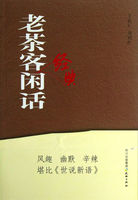Chapter1 An Impartial Glance at the Ancient Magistracy
Avery happy personage in the year of grace 1482, was the noble gentleman Robert d'Estouteville, chevalier, Sieur de Beyne, Baron d'Ivry and Saint Andry en la Marche, counsellor and chamberlain to the king, and guard of the provostship of Paris. It was already nearly seventeen years since he had received from the king, on November 7, 1465, the comet year, that fine charge of the provostship of Paris, which was reputed rather a seigneury than an office.Dignitas, says Joannes Loemnoeus, quae cum non exigua potestate politiam concernente, atque proerogativis multis et juribus conjuncta est.A marvellous thing in'82 was a gentleman bearing the king's commission, and whose letters of institution ran back to the epoch of the marriage of the natural daughter of Louis XI.with Monsieur the Bastard of Bourbon.
The same day on which Robert d'Estouteville took the place of Jacques de Villiers in the provostship of Paris, Master Jehan Dauvet replaced Messire Helye de Thorrettes in the first presidency of the Court of Parliament, Jehan Jouvenel des Ursins supplanted Pierre de Morvilliers in the office of chancellor of France, Regnault des Dormans ousted Pierre Puy from the charge of master of requests in ordinary of the king's household.Now, upon how many heads had the presidency, the chancellorship, the mastership passed since Robert d'Estouteville had held the provostship of Paris.It had been“granted to him for safekeeping, ”as the letters patent said; and certainly he kept it well.He had clung to it, he had incorporated himself with it, he had so identified himself with it that he had escaped that fury for change which possessed Louis XI., a tormenting and industrious king, whose policy it was to maintain the elasticity of his power by frequent appointments and revocations.More than this; the brave chevalier had obtained the reversion of the office for his son, and for two years already, the name of the noble man Jacques d'Estouteville, equerry, had figured beside his at the head of the register of the salary list of the provostship of Paris.A rare and notable favor indeed!It is true that Robert d'Estouteville was a good soldier, that he had loyally raised his pennon against“the league of public good, ”and that he had presented to the queen a very marvellous stag in confectionery on the day of her entrance to Paris in 14……Moreover, he possessed the good friendship of Messire Tristan l'Hermite, provost of the marshals of the king's household.Hence a very sweet and pleasant existence was that of Messire Robert.In the first place, very good wages, to which were attached, and from which hung, like extra bunches of grapes on his vine, the revenues of the civil and criminal registries of the provostship, plus the civil and criminal revenues of the tribunals of Embas of the Chatelet, without reckoning some little toll from the bridges of Mantes and of Corbeil, and the profits on the craft of Shagreen-makers of Paris, on the corders of firewood and the measurers of salt.Add to this the pleasure of displaying himself in rides about the city, and of making his fine military costume, which you may still admire sculptured on his tomb in the abbey of Valmont in Normandy, and his morion, all embossed at Montlhéry, stand out a contrast against the parti-colored red and tawny robes of the aldermen and police.And then, was it nothing to wield absolute supremacy over the sergeants of the police, the porter and watch of the Chatelet, the two auditors of the Chatelet, auditores castelleti, the sixteen commissioners of the sixteen quarters, the jailer of the Chatelet, the four enfeoffed sergeants, the hundred and twenty mounted sergeants, with maces, the chevalier of the watch with his watch, his sub-watch, his counter-watch and his rear-watch?Was it nothing to exercise high and low justice, the right to interrogate, to hang and to draw, without reckoning petty jurisdiction in the first resort, on that viscomty of Paris, so nobly appanaged with seven noble bailiwicks?Can anything sweeter be imagined than rendering judgments and decisions, as Messire Robert d'Estouteville daily did in the Grand Chatelet, under the large and flattened arches of Philip Augustus?and going, as he was wont to do every evening, to that charming house situated in the Rue Galilee, in the enclosure of the royal palace, which he held in right of his wife, Madame Ambroise de Lore, to repose after the fatigue of having sent some poor wretch to pass the night in“that little cell of the Rue de Escorcherie, which the provosts and aldermen of Paris used to make their prison; the same being eleven feet long, seven feet and four inches wide, and eleven feet high?”
And not only had Messire Robert d'Estouteville his special court as provost and vicomte of Paris; but in addition he had a share, both for eye and tooth, in the grand court of the king. There was no head in the least elevated which had not passed through his hands before it came to the headsman.It was he who went to seek M.de Nemours at the Bastille Saint Antoine, in order to conduct him to the Halles; and to conduct to the Grève M.de Saint-Pol, who clamored and resisted, to the great joy of the provost, who did not love monsieur the constable.
Here, assuredly, is more than sufficient to render a life happy and illustrious, and to deserve some day a notable page in that interesting history of the provosts of Paris, where one learns that Oudard de Villeneuve had a house in the Rue des Boucheries, that Guillaume de Hangest purchased the great and the little Savoy, that Guillaume Thiboust gave the nuns of Sainte-Geneviève his houses in the Rue Clopin, that Hugues Aubriot lived in the H?tel du Pore-Epic, and other domestic facts.
Nevertheless, with so many reasons for taking life patiently and joyously, Messire Robert d'Estouteville woke up on the morning of the seventh of January, 1482, in a very surly and peevish mood. Whence came this ill temper?He could not have told himself.Was it because the sky was gray?or was the buckle of his old belt of Montlhéry badly fastened, so that it confined his provostal portliness too closely?had he beheld ribald fellows, marching in bands of four, beneath his window, and setting him at defiance, in doublets but no shirts, hats without crowns, with wallet and bottle at their side?Was it a vague presentiment of the three hundred and seventy livres, sixteen sous, eight farthings, which the future King Charles VII.was to cut off from the provostship in the following year?The reader can take his choice; we, for our part, are much inclined to believe that he was in a bad humor, simply because he was in a bad humor.
Moreover, it was the day after a festival, a tiresome day for every one, and above all for the magistrate who is charged with sweeping away all the filth, properly and figuratively speaking, which a festival day produces in Paris. And then he had to hold a sitting at the Grand Chatelet.Now, we have noticed that judges in general so arrange matters that their day of audience shall also be their day of bad humor, so that they may always have some one upon whom to vent it conveniently, in the name of the king, law, and justice.
However, the audience had begun without him. His lieutenants, civil, criminal, and private, were doing his work, according to usage; and from eight o'clock in the morning, some scores of bourgeois and bourgeoises, heaped and crowded into an obscure corner of the audience chamber of Embas du Chatelet, between a stout oaken barrier and the wall, had been gazing blissfully at the varied and cheerful spectacle of civil and criminal justice dispensed by Master Florian Barbedienne, auditor of the Chatelet, lieutenant of monsieur the provost, in a somewhat confused and utterly haphazard manner.
The hall was small, low, vaulted. A table studded with fleurs-de-lis stood at one end, with a large arm-chair of carved oak, which belonged to the provost and was empty, and a stool on the left for the auditor, Master Florian.Below sat the clerk of the court, scribbling; opposite was the populace; and in front of the door, and in front of the table were many sergeants of the provostship in sleeveless jackets of violet camlet, with white crosses.Two sergeants of the Parloir-aux-Bourgeois, clothed in their jackets of Toussaint, half red, half blue, were posted as sentinels before a low, closed door, which was visible at the extremity of the hall, behind the table.A single pointed window, narrowly encased in the thick wall, illuminated with a pale ray of January sun two grotesque figures, —the capricious demon of stone carved as a tail-piece in the keystone of the vaulted ceiling, and the judge seated at the end of the hall on the fleurs-de-lis.
Imagine, in fact, at the provost's table, leaning upon his elbows between two bundles of documents of cases, with his foot on the train of his robe of plain brown cloth, his face buried in his hood of white lamb's skin, of which his brows seemed to be of a piece, red, crabbed, winking, bearing majestically the load of fat on his cheeks which met under his chin, Master Florian Barbedienne, auditor of the Chatelet.
Now, the auditor was deaf.A slight defect in an auditor.Master Florian delivered judgment, none the less, without appeal and very suitably. It is certainly quite sufficient for a judge to have the.air of listening; and the venerable auditor fulfilled this condition, the sole one in justice, all the better because his attention could not be distracted by any noise.
Moreover, he had in the audience, a pitiless censor of his deeds and gestures, in the person of our friend Jehan Frollo du Moulin, that little student of yesterday, that“stroller, ”whom one was sure of encountering all over Paris, anywhere except before the rostrums of the professors.
“Stay, ”he said in a low tone to his companion, Robin Poussepain, who was grinning at his side, while he was making his comments on the scenes which were being unfolded before his eyes, “yonder is Jehanneton du Buisson.The beautiful daughter of the lazy dog at the March?Neuf!—Upon my soul, he is condemning her, the old rascal!he has no more eyes than ears.Fifteen sous, four farthings, parisian, for having worn two rosaries!'Tis somewhat dear.Lex duri carminis.Who's that?Robin Chief-de-Ville, hauberkmaker.For having been passed and received master of the said trade!That's his entrance money.He!two gentlemen among these knaves!Aiglet de Soins, Hutin de Mailly Two equerries, Corpus Christi!Ah!they have been playing at dice.When shall I see our rector here?A hundred livres parisian, fine to the king!That Barbedienne strikes like a deaf man, —as he is!I'll be my brother the archdeacon, if that keeps me from gaming; gaming by day, gaming by night, living at play, dying at play, and gaming away my soul after my shirt.Holy Virgin, what damsels!One after the other my lambs.Ambroise Lécuyère, Isabeau la Paynette, Bérarde Gironin!I know them all, by Heavens!A fine!a fine!That's what will teach you to wear gilded girdles!ten sous parisis!you coquettes!Oh!the old snout of a judge!deaf and imbecile!Oh!Florian the dolt!Oh!Barbedienne the blockhead!There he is at the table!He's eating the plaintiff, he's eating the suits, he eats, he chews, he crams, he fills himself.Fines, lost goods, taxes, expenses, loyal charges, salaries, damages, and interests, gehenna, prison, and jail, and fetters with expenses are Christmas spice cake and marchpanes of Saint-John to him!Look at him, the pig!—Come!Good!Another amorous woman!Thibaud-la-Thibaude, neither more nor less!For having come from the Rue Glatigny!What fellow is this?Gieffroy Mabonne, gendarme bearing the crossbow. He has cursed the name of the Father.A fine for la Thibaude!A fine for Gieffroy!A fine for them both!The deaf old fool!he must have mixed up the two cases!Ten to one that he makes the wench pay for the oath and the gendarme for the amour!Attention, Robin Poussepain!What are they going to bring in?Here are many sergeants!By Jupiter!all the bloodhounds of the pack are there.It must be the great beast of the hunt—a wild boar.And 'tis one, Robin, 'tis one.And a fine one too!Hercle!'tis our prince of yesterday, our Pope of the Fools, our bellringer, our one-eyed man, our hunchback, our grimace!'Tis Quasimodo!”
It was he indeed.
It was Quasimodo, bound, encircled, roped, pinioned, and under good guard. The squad of policemen who surrounded him was assisted by the chevalier of the watch in person, wearing the arms of France embroidered on his breast, and the arms of the city on his back.There was nothing, however, about Quasimodo, except his deformity, which could justify the display of halberds and arquebuses; he was gloomy, silent, and tranquil.Only now and then did his single eye cast a sly and wrathful glance upon the bonds with which he was loaded.
He cast the same glance about him, but it was so dull and sleepy that the women only pointed him out to each other in derision.
Meanwhile Master Florian, the auditor, turned over attentively the document in the complaint entered against Quasimodo, which the clerk handed him, and, having thus glanced at it, appeared to reflect for a moment. Thanks to this precaution, which he always was careful to take at the moment when on the point of beginning an examination, he knew beforehand the names, titles, and misdeeds of the accused, made cut and dried responses to questions foreseen, and succeeded in extricating himself from all the windings of the interrogation without allowing his deafness to be too apparent.The written charges were to him what the dog is to the blind man.If his deafness did happen to betray him here and there, by some incoherent apostrophe or some unintelligible question, it passed for profundity with some, and for imbecility with others.In neither case did the honor of the magistracy sustain any injury; for it is far better that a judge should be reputed imbecile or profound than deaf.Hence he took great care to conceal his deafness from the eyes of all, and he generally succeeded so well that he had reached the point of deluding himself, which is, by the way, easier than is supposed.All hunchbacks walk with their heads held high, all stutterers harangue, all deaf people speak low.As for him, he believed, at the most, that his ear was a little refractory.It was the sole concession which he made on this point to public opinion, in his moments of frankness and examination of his conscience.
Having, then, thoroughly ruminated Quasimodo's affair, he threw back his head and half closed his eyes, for the sake of more majesty and impartiality, so that, at that moment, he was both deaf and blind. A double condition, without which no judge is perfect.It was in this magisterial attitude that he began the examination.
“Your name?”
Now this was a case which had not been“provided for by law, ”where a deaf man should be obliged to question a deaf man.
Quasimodo, whom nothing warned that a question had been addressed to him, continued to stare intently at the judge, and made no reply. The judge, being deaf, and being in no way warned of the deafness of the accused, thought that the latter had answered, as all accused do in general, and therefore he pursued, with his mechanical and stupid self-possession, —
“Very well. And your age?”
Again Quasimodo made no reply to this question. The judge supposed that it had been replied to, and continued, —
“Now, your profession?”
Still the same silence. The spectators had begun, meanwhile, to whisper together, and to exchange glances.
“That will do, ”went on the imperturbable auditor, when he supposed that the accused had finished his third reply.“You are accused before us, primo, of nocturnal disturbance; secundo, of a dishonorable act of violence upon the person of a foolish woman, in proejudicium meretricis; tertio, of rebellion and disloyalty towards the archers of the police of our lord, the king. Explain yourself upon all these points.—Clerk, have you written down what the prisoner has said thus far?”
At this unlucky question, a burst of laughter rose from the clerk's table caught by the audience, so violent, so wild, so contagious, so universal, that the two deaf men were forced to perceive it. Quasimodo turned round, shrugging his hump with disdain, while Master Florian, equally astonished, and supposing that the laughter of the spectators had been provoked by some irreverent reply from the accused, rendered visible to him by that shrug of the shoulders, apostrophized him indignantly, —
“You have uttered a reply, knave, which deserves the halter. Do you know to whom you are speaking?”
This sally was not fitted to arrest the explosion of general merriment. It struck all as so whimsical, and so ridiculous, that the wild laughter even attacked the sergeants of the Parloi-aux-Bourgeois, a sort of pikemen, whose stupidity was part of their uniform.Quasimodo alone preserved his seriousness, for the good reason that he understood nothing of what was going on around him.The judge, more and more irritated, thought it his duty to continue in the same tone, hoping thereby to strike the accused with a terror which should react upon the audience, and bring it back to respect.
“So this is as much as to say, perverse and thieving knave that you are, that you permit yourself to be lacking in respect towards the Auditor of the Chatelet, to the magistrate committed to the popular police of Paris, charged with searching out crimes, delinquencies, and evil conduct; with controlling all trades, and interdicting monopoly; with maintaining the pavements; with debarring the hucksters of chickens, poultry, and water-fowl; of superintending the measuring of fagots and other sorts of wood; of purging the city of mud, and the air of contagious maladies; in a word, with attending continually to public affairs, without wages or hope of salary!Do you know that I am called Florian Barbedienne, actual lieutenant to monsieur the provost, and, moreover, commissioner, inquisitor, controller, and examiner, with equal power in provostship, bailiwick, preservation, and inferior court of judicature?—”
There is no reason why a deaf man talking to a deaf man should stop. God knows where and when Master Florian would have landed, when thus launched at full speed in lofty eloquence, if the low door at the extreme end of the room had not suddenly opened, and given entrance to the provost in person.At his entrance Master Florian did not stop short, but, making a half-turn on his heels, and aiming at the provost the harangue with which he had been withering Quasimodo a moment before, —
“Monseigneur, ”said he, “I demand such penalty as you shall deem fitting against the prisoner here present, for grave and aggravated offence against the court.”
And he seated himself, utterly breathless, wiping away the great drops of sweat which fell from his brow and drenched, like tears, the parchments spread out before him. Messire Robert d'Estouteville frowned and made a gesture so imperious and significant to Quasimodo, that the deaf man in some measure understood it.
The provost addressed him with severity, “What have you done that you have been brought hither, knave?”
The poor fellow, supposing that the provost was asking his name, broke the silence which he habitually preserved, and replied, in a harsh and guttural voice, “Quasimodo.”
The reply matched the question so little that the wild laugh began to circulate once more, and Messire Robert exclaimed, red with wrath, —
“Are you mocking me also, you arrant knave?”
“Bellringer of Notre-Dame, ”replied Quasimodo, supposing that what was required of him was to explain to the judge who he was.
“Bellringer!”interpolated the provost, who had waked up early enough to be in a sufficiently bad temper, as we have said, not to require to have his fury inflamed by such strange responses.“Bellringer!I'll play you a chime of rods on your back through the squares of Paris!Do you hear, knave?”
“If it is my age that you wish to know, ”said Quasimodo, “I think that I shall be twenty at Saint Martin's day.”
This was too much; the provost could no longer restrain himself.
“Ah!you are scoffing at the provostship, wretch!Messieurs the sergeants of the mace, you will take me this knave to the pillory of the Grève, you will flog him, and turn him for an hour.He shall pay me for it, 'Sdeath!And I order that the present judgment shall be cried, with the assistance of four sworn trumpeters, in the seven castellanies of the viscomty of Paris.”
The clerk set to work incontinently to draw up the account of the sentence.
“Ventre Dieu! 'tis well adjudged!”cried the little scholar, Jehan Frollo du Moulin, from his corner.
The provost turned and fixed his flashing eyes once more on Quasimodo.“I believe the knave said 'Ventre Dieu'Clerk, add twelve deniers Parisian for the oath, and let the vestry of Saint Eustache have the half of it; I have a particular devotion for Saint Eustache.”
In a few minutes the sentence was drawn up. Its tenor was simple and brief.The customs of the provostship and the viscomty had not yet been worked over by President Thibaut Baillet, and by Roger Barmne, the king's advocate; they had not been obstructed, at that time, by that lofty hedge of quibbles and procedures, which the two jurisconsults planted there at the beginning of the sixteenth century.All was clear, expeditious, explicit.One went straight to the point then, and at the end of every path there was immediately visible, without thickets and without turnings; the wheel, the gibbet, or the pillory.One at least knew whither one was going.
The clerk presented the sentence to the provost, who affixed his seal to it, and departed to pursue his round of the audience hall, in a frame of mind which seemed destined to fill all the jails in Paris that day. Jehan Frollo and Robin Poussepain laughed in their sleeves.Quasimodo gazed on the whole with an indifferent and astonished air.
However, at the moment when Master Florian Barbedienne was reading the sentence in his turn, before signing it, the clerk felt himself moved with pity for the poor wretch of a prisoner, and, in the hope of obtaining some mitigation of the penalty, he approached as near the auditor's ear as possible, and said, pointing to Quasimodo, “That man is deaf.”
He hoped that this community of infirmity would awaken Master Florian's interest in behalf of the condemned man.But, in the first place, we have already observed that Master Florian did not care to have his deafness noticed.In the next place, he was so hard of hearing That he did not catch a single word of what the clerk said to him; nevertheless, he wished to have the appearance of hearing, and replied, “Ah!ah!that is different; I did not know that. An hour more of the pillory, in that case.”
And he signed the sentence thus modified.
“'Tis well done, ”said Robin Poussepain, who cherished a grudge against Quasimodo.“That will teach him to handle people roughly.”
Chapter2 The Rat Hole
The reader must permit us to take him back to the Place de Grève, which we quitted yesterday with Gringoire, in order to follow la Esmeralda.
It is ten o'clock in the morning; everything is indicative of the day after a festival. The pavement is covered with rubbish; ribbons, rags, feathers from tufts of plumes, drops of wax from the torches, crumbs of the public feast.A goodly number of bourgeois are“sauntering, ”as we say, here and there, turning over with their feet the extinct brands of the bonfire, going into raptures in front of the Pillar House, over the memory of the fine hangings of the day before, and to-day staring at the nails that secured them a last pleasure.The venders of cider and beer are rolling their barrels among the groups.Some busy passers-by come and go.The merchants converse and call to each other from the thresholds of their shops.The festival, the ambassadors, Coppenole, the Pope of the Fools, are in all mouths; they vie with each other, each trying to criticise it best and laugh the most.And, meanwhile, four mounted sergeants, who have just posted themselves at the four sides of the pillory, have already concentrated around themselves a goodly proportion of the populace scattered on the Place, who condemn themselves to immobility and fatigue in the hope of a small execution.















